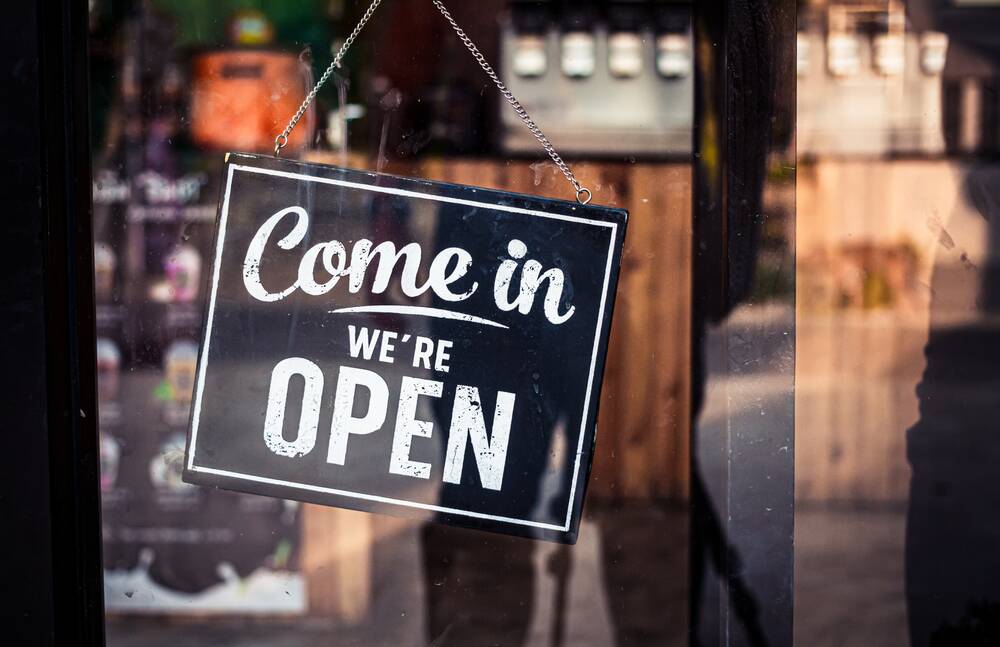What type of stores work better with physical locations?

This is branded content.
The growth of online stores has matched or even surpassed the magnitude of stores with physical locations.
The lower overhead costs, the accessibility for customers and the convenience have made online stores much more popular lately.
During the last couple of years, some have even opted to move from physical to online locations.
There are, however, some major advantages of keeping stores in physical locations. Some customers prefer shopping in-store; some items are best seen in person.
There are many reasons why some types of stores work better in physical areas, and this article will look at the stores that work better as brick-and-mortar retailers.
Types of stores that work better
The stores that tend to work better focus on the needs and desires of customers who prefer in-store shopping.
A range of stores work better in physical locations, and these are usually the retails that are less specialised, and customers are already accustomed to shopping physically.
These include retailers with a single physical location, department stores, grocery stores, supermarkets, hypermarkets, retailers of discounted goods and outlet retailers.
Retailers with a single physical location
Typically, single-location merchants are family-owned companies that sell handcrafted goods, thrift stores, or markets. This store's focus is generally on the immediate neighbourhood, which may do well to cultivate enduring relationships with frequent buyers.
Retail stores in a single location may be an excellent choice for individuals interested in fostering relationships with community members, contributing to the economy of the immediate area, or working as part of a small team of coworkers.
These stores thrive on community and seeing people face to face, often having loyal customer bases that prefer physical interaction.
Additionally, this kind of store caters for the elderly crowd who may not be savvy about online shopping.
Department stores
The assortment of goods available at department stores is typically quite extensive. They are traditionally found as anchor stores in shopping malls.
They have a variety of sections, also known as departments, each of which is dedicated to a specific category, such as apparel, shoes, luggage, beauty products, appliances, hardware, and other items.
Running a department store may be intriguing to those interested in specialising in a particular retail category, collaborating with colleagues assigned to other departments, and running teams with diverse abilities.
Grocery stores, supermarkets, and hypermarkets
These shops offer some fundamentally comparable products and services; differentiating between them can be challenging, but we must make essential distinctions.
What differentiates these three kinds of shops from one another is as follows:
Retailers of discounted goods
Discount retailers offer grocery and household goods with generic brand names that are lower than traditional retailers. They frequently buy merchandise that has been discontinued, overstocked, or liquidated, which helps them keep their prices competitive. The stores often retailing discounted goods can also include wholesale gifts in Australia. This kind of store is better to have physical, so you might as well open it to customers.
Grocery store
Food, beverages, and often other home necessities are grocery stores' primary focuses. They are usually owned by a single-family and can either be standalone establishments or be part of smaller regional franchises.
These rarely are run online as customers prefer to be in-store to make these purchases.
Supermarkets
The term "department" refers to a supermarket section devoted to a particular food or grocery item category. In addition, they may sell garments, home furnishings, electrical appliances, things for infants, and freshly baked delicacies.
Most supermarkets aim to attract as many customers as possible by stocking various goods.
Hypermarkets
Supermarkets are the basic building blocks from which hypermarkets, also known as superstores, are constructed. In addition to selling groceries, they might also operate a pharmacy, car mechanic shop, picture centre, eye clinic, bank, and possibly even more businesses. The fact that many physical clinics, automobile services and other physically demanding services operate in the same vicinity makes it convenient to do all your shopping here rather than separating it from online purchases.
Outlet retailers
Outlet stores, also known as specialty retailers, are distinguished because they typically stock products of a single brand. An example would be a retailer specialising in outlet stores selling a large selection of sporting goods manufactured by a well-known brand, a collection of high-end fragrances manufactured by a designer brand, or trendy clothing produced by a specific company.
This is similar to the last retailer as they both already have the factory location, so they might as well utilise it for sales.
Final verdict
In this article, we have told you about what types of stores work better with physical locations. A physical store, sometimes known as a brick-and-mortar store, is a retail establishment where merchandise is displayed and sold in a physical area.
Many physical stores, including those that stand alone, are part of a shopping mall and are connected to other places like museums, tourist attractions, or private residences.
Hopefully, you can get an idea of what kind of physical stores thrive and make a better-informed decision on what you'd like for your store.


